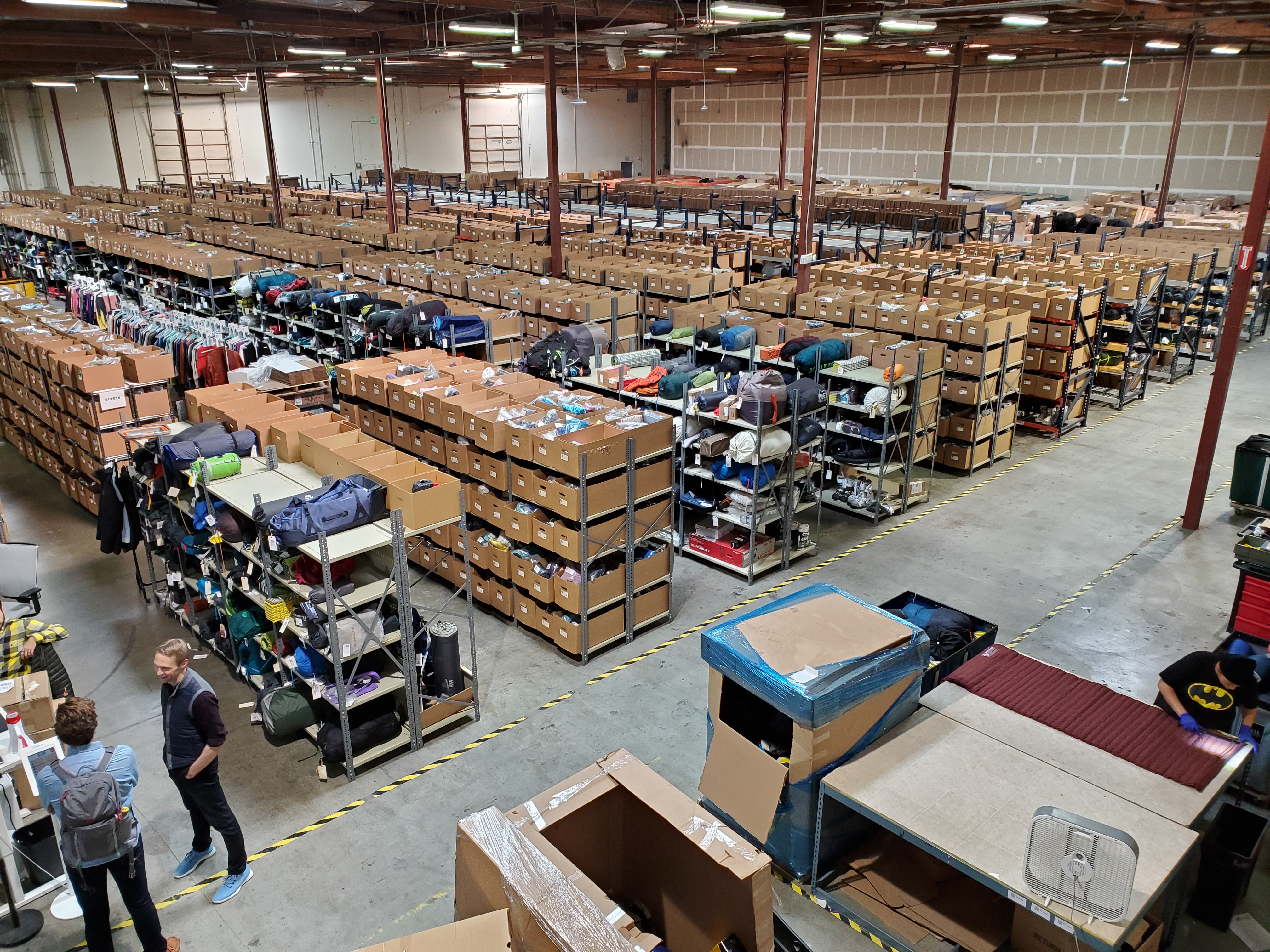
There’s been a lot of talk about the circular economy, which generates more talk, more press releases, more events, more partnerships and then, more talk. But the outdoor gear and apparel company REI, well-known for its #OptOutside campaigns and staying closed on Black Friday, is also opting to expand the circular economy to its members and customers – and doing so aggressively.
The Seattle-based co-op is doing so by expanding its popular “garage sales” online. If you’re an REI member, you’re aware of the quarterly sales at many of its locations, at which lightly used or returned goods are sold at a steep discount. Disneyland would blush at those lines that are queued up long before those sales begin. Many outdoor enthusiasts, however, are located quite far from an REI location, and that demand for well-priced and used goods in part led the retailer to start partnering with Yerdle, a Northern California-based company that designs the online architecture allowing brands to resell returned or used items online.
“Partnering with Yerdle allows REI to build on the successes of its in-store garage sales and get niche product in the hands of people who can continue to use it,” said an REI spokesperson while TriplePundit toured Yerdle’s warehouse in Brisbane, California earlier this fall.
Walking around the cavernous Yerdle warehouse is akin to wandering around any apparel retailer’s fulfillment center, with a few notable differences. At Yerdle, the massive boxes that arrive are items that for the most part were returned by online shoppers. The vast majority of these items are in perfectly fine shape, but there’s no way REI (or other retailers like Patagonia that works with Yerdle) could sell those items again at full time.

Photo: A view of Yerdle's warehouse in Brisbane, CA
Hence there is a team of Yerdle employees who is tasked with inspecting these items – and do everything from light cleaning to small repairs, to assessing the condition of these items for resale and then entering that data on a tablet. Other employees repackage and store the items until they are ready to be sold and shipped yet again. One highlight was watching a Yerdle photographer whose job it was to capture these items so they look attractive once they are posted on REI’s used gear and apparel website.
According to the company, REI is on track to resell nearly a million used items by the end of this year 2019, and this segment of its business is on target to nearly double in revenue in 2019 compared to the previous year. Over one-third of REI’s used gear and rental customers are brand-new members; and one-third of REI’s rental customers are millennials. The most popular products since this site launched have been camping goods such as tents and sleeping bags, hiking boots, women’s apparel and synthetic outerwear – understandable when you consider the cost of buying these items.
Perusing through REI’s used gear and apparel website is like surfing through any other retailers’ site – you can search by brand, color, size – as well as the condition of the product as well.
For those consumers such as the occasional campers or skiers who would rather not buy these items in the first place, REI also operates a rental service, which company representatives say is also quickly growing.
Currently, the company is piloting a buy-back program with Yerdle in which members can
buy, sell and trade in their unwanted used outdoor gear and apparel. At the moment this program is limited to members who the company has invited to test this online program.
For retailers keen on becoming part of the circular economy, REI offers ideas on how to words into action. Over past decade, various retailers on both sides of the pond have tinkered with recycling clothing and having clothing donation stations plunked within their stores. But the reality is that scaling up textile recycling has been a fitful experience at best – after all, if these programs were successful, we’d be hearing about them. There are huge hurdles to going circular by recycling textiles – changing consumers’ habits at an epic scale, making clothing out of blends that allow for effective recycling (if that cotton stretch t-shirt has 5 percent nylon, sorry, you’re out of luck) and having apparel companies agree to completely transform their supply chains.
But if we went back to quality products, took good care of them, and then allowed someone else to reuse and repurchase them, such a change could help mitigate the global garment industry’s environmental and social impacts. REI is off to a solid start – even if it falls short of its million-items goal this year, its achievements so far are nothing to sniff at.
Image credit: Leon Kaye

Leon Kaye has written for 3p since 2010 and become executive editor in 2018. His previous work includes writing for the Guardian as well as other online and print publications. In addition, he's worked in sales executive roles within technology and financial research companies, as well as for a public relations firm, for which he consulted with one of the globe’s leading sustainability initiatives. Currently living in Central California, he’s traveled to 70-plus countries and has lived and worked in South Korea, the United Arab Emirates and Uruguay.
Leon’s an alum of Fresno State, the University of Maryland, Baltimore County and the University of Southern California's Marshall Business School. He enjoys traveling abroad as well as exploring California’s Central Coast and the Sierra Nevadas.














